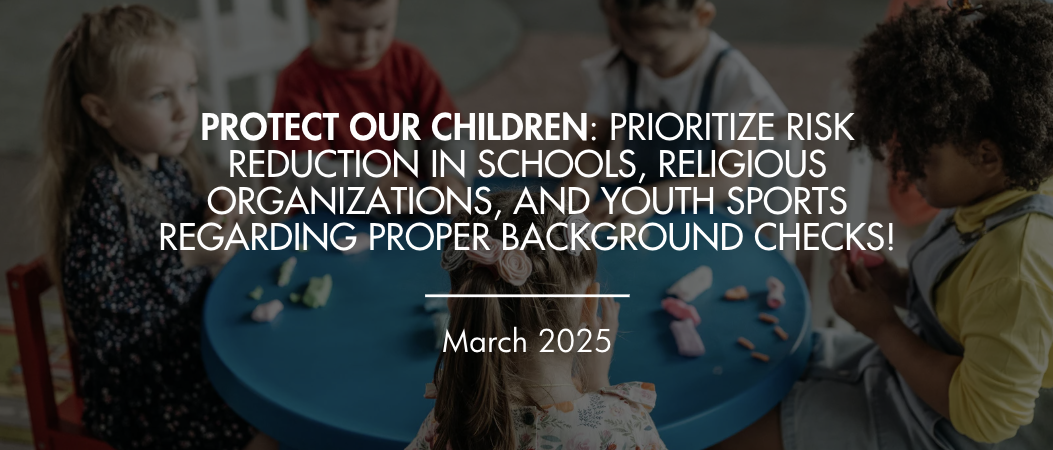Too often, organizations tasked with protecting children—schools, religious groups, and extracurricular programs—react only after tragedy strikes. Headlines about negligence abound: “Maryland Teacher Indicted on Federal Drug Charges,” “Drunken School Bus Drivers Put Kids’ Lives at Risk,” “Sex Offender Hired to Work in Schools.” The cycle of reactive measures and empty promises must end. Proactive accountability and stricter laws are essential.
The Alarming Statistics
According to RAINN, 1 in 9 girls and 1 in 20 boys under 18 experience sexual abuse, with 93% of perpetrators known to the victim. Despite these sobering facts, many organizations fail to implement robust safety measures until it’s too late.
The Cost of Negligence
Over the past year, organizations have faced multimillion-dollar lawsuits for failing to adequately screen employees and volunteers in safety-sensitive roles. These failures jeopardize the very children they aim to protect.
Five Steps to Enhance Child Safety
-
Require Background Screening for All Roles:
Make background screening mandatory for anyone working with or near children, including independent contractors and vendors. Proactive measures deter individuals seeking access to vulnerable populations. Collaborate with your legal counsel to develop detailed screening policies and procedures. -
Conduct Comprehensive Checks:
Basic database criminal searches are insufficient, not up to date, and miss most case information. Partner with a trusted, reliable background screening firm, to perform thorough criminal background checks, including primary source employment and education verifications. Resume fraud is common; comprehensive verification prevents hiring risks. As noted in The Chronicle Online article, “It’s time to do more than check a box.” -
Understand Legal Requirements:
Federal, state, and municipal laws governing background checks are complex and ever-changing. Regularly consult with legal experts to ensure compliance while maintaining a robust screening program for safety-sensitive positions. Neglecting this area can lead to devastating consequences, including lawsuits and reputational damage. Negligence will not hold up in court. -
Implement Regular Rescreening:
Initial screenings are not enough to protect your organization. Employees must be periodically rescreened to identify any new risks. Implementing Continuous Criminal Monitoring can also be an option. Establish a clear policy and schedule for rescreening or implement Continuous Criminal Monitoring, in consultation with your legal counsel. -
Review and Update Policies Annually:
The background screening industry and legal landscape are constantly evolving. Schedule annual reviews of your screening program with legal advisors to ensure adherence to the latest laws and best practices.
Conclusion
Protecting children requires vigilance, proactive policies, and unwavering commitment. Regularly evaluate and refine your screening processes to reduce risks and safeguard vulnerable populations. Collaborate with legal experts and trusted screening partners to stay ahead of potential threats. Always be sure to work with a reliable background screening company that is also a consumer reporting agency (CRA), as they can help your organization navigate its authorization and disclosure responsibilities, which can help in maintaining compliance with governing laws.
Posted by: Rudy Troisi, L.P.I., Founder, CEO, Reliable Background Screening and Alan Lasky, SVP Client Success & Partnerships.
This content is for informational purposes only and not legal advice or binding case law. Consult qualified legal counsel for assistance.
Copyright © 2025, Reliable Background Screening, a Division of Marcett, Inc. All rights reserved.


